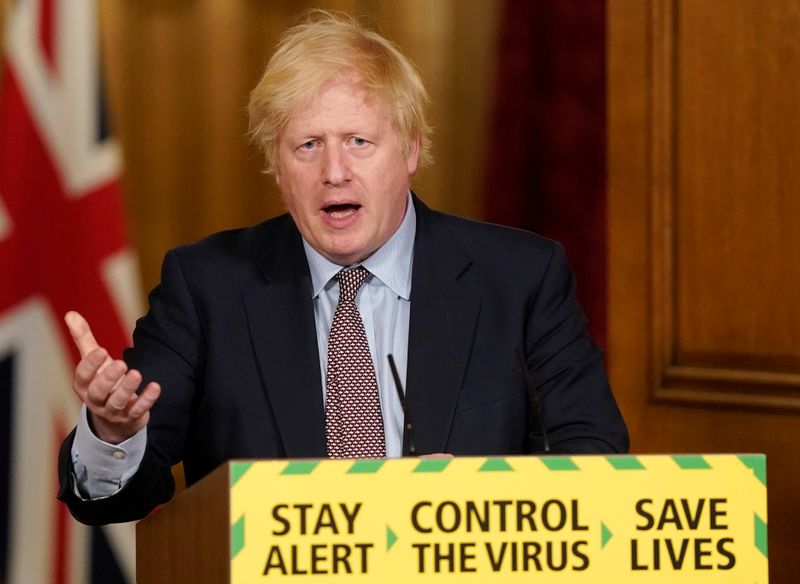LONDON (Reuters) – Prime Minister Boris Johnson said the emotions triggered by the death of George Floyd in the United States could not be ignored, and the British government had to do more to fight prejudice towards people from black and minority ethnic groups.
The death of Floyd, an unarmed African American, has sparked demonstrations around the world over police brutality. More than 100,000 people took part in anti-racism protests around Britain over the weekend.
“We who lead and who govern simply can’t ignore those feelings because in too many cases, I am afraid, they will be founded on a cold reality,” Johnson said in a video statement posted on Twitter on Monday.
He said Britain had made huge strides in tackling racism but it must also “frankly acknowledge that there is so much more to do – in eradicating prejudice, and creating opportunity”.
Demonstrators defied warnings not to gather in large groups due to the risk of spreading the coronavirus.
Otherwise peaceful demonstrations in London ended with small groups clashing with police. Dozens of police officers were injured and more than 100 people were arrested.
A statue of Winston Churchill on Parliament Square in London was sprayed with graffiti and in Bristol in western England, protesters toppled a statue of 17th Century slave trader Edward Colston.
“I will not support those who flout the rules on social distancing … I will not support or indulge those who break the law or attack the police or desecrate public monuments,” Johnson said.
He warned those who attacked public property or the police would “face the full force of the law”.
“They are hijacking a peaceful protest and undermining it in the eyes of many who might otherwise be sympathetic. And as a society, we can and must do better.”
(Reporting by Kylie MacLellan and Paul Sandle; editing by Stephen Addison)























